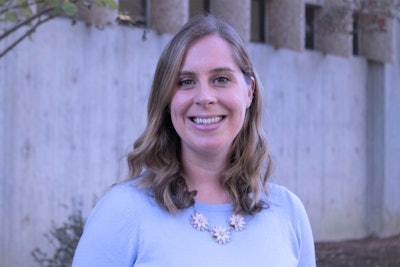Many of us who are student affairs practitioners have spent the last few years leaning into uncomfortable dialogue around issues of racial, gender, and sexual inequity on our campuses. We have attended conferences, workshops, and professional development meetings aimed at providing us with the tools needed to facilitate hard conversations with our colleagues and students. Our end goal is always the same: to make welcoming, productive environments for all our students. But we are missing a crucial element if we really do want to increase our students’ sense of belonging and foster their personal development during their time on our college campuses. We are missing dialogue about spirituality and religion.
In moments when the whole world seems to be on fire, as with the COVID-19 crisis we are now experiencing, our students have found themselves in the throes of anxiety-inducing situations. While campus counseling services have scrambled to move their operations online and remain determined to meet the needs of our students whose lives have been upended, the demand has proven to be too great. Our students are seeking additional supports, and they are coming to us. We are charged with thinking critically and strategically about the best ways to engage in this moment. If we approach this crisis without recognizing that our students’ mental and emotional turmoil may be tied up with overwhelming questions about mortality, faith, or the existence of God, then we are missing the mark.
 Gretchen Curry
Gretchen CurryFor those of us at public institutions where the avoidance of spirituality is all too commonplace, what better time than a pandemic to muster up the courage to engage in these hard questions with our students for the first time? Whether we have pushed spirituality aside for fear of disapproval for speaking about controversial subject matter, or for worry that any discussion of spirituality will be confused with an intent to proselytize, our eagerness to disengage does our students a great disservice. Their need for spiritual guidance should outweigh our desire to leave the feathers unruffled.
A major 2003 study of 5,550 students from 39 colleges and universities throughout the United States revealed that 44% of the sample size experienced some distress when it comes to spiritual or religious concerns. That’s a note-worthy amount! Of these students, 25% experienced “considerable distress” around these same concerns. These feelings of distress are common enough to warrant their own term: “spiritual struggle,” which Bryant and Astin (2008) define as “…intrapsychic concerns about matters of faith, purpose, and meaning in life.” Students who experience spiritual struggle are simply trying to figure out where spirituality and their views on morality fit into their new lives as college students and young adults.
Over the last few decades, there have been a number of studies which investigate the link between spiritual struggle and mental wellbeing. The research shows that when a student is really grappling with spiritual struggle, they might find themselves combating negative impacts such as depression and anxiety, low self-esteem, and sometimes suicidal thoughts. On the other hand, students who are feeling confident about the role spirituality and religion plays in their lives tend to experience beneficial outcomes for physical and mental health. Even students who are “questing” or searching for a spiritual truth in a way that is positive may grow in their moral reasoning, tolerance, and helping behaviors – values that we as student affairs practitioners strive to instill in our students each day.
In 2013 and 2014 my job was facilitating immersion groups for college students on the US/Mexico border. By drawing on my upbringing as the daughter of an Episcopal bishop, I supported these students as they worked to make sense of the difficult circumstances they were witnessing within migrant communities. Allowing space for these students to tap into their own diverse faith backgrounds if they chose to do so created opportunities for meaningful dialogue and deep reflection that they otherwise may not have felt comfortable engaging in.
We need to reassure our students, especially now, that the questions that arise for them around spirituality and the messy role it may play in their lives as college students are completely normal and expected. Though our actions should not emulate those of interfaith chaplains or spiritual advisors, we do need to be prepared to discuss spirituality with students in a way that is supportive and productive. Simply acknowledging that our students’ traumas could have spiritual linkages is a strong first step. The actions that follow would depend on our preparedness. If our students have not yet found the support they need, we either engage them in dialogue ourselves about their spiritual distress, or we offer to guide them to colleagues better equipped to handle such crises.
While it is the job of faculty on our campuses to help students grow academically, it is our job in student affairs to help them grow holistically. If there were to be one positive outcome of the coronavirus crisis, let it be that we as student affairs practitioners finally set our deep-seated hesitations aside to engage in some of the most important conversations students need to be having with us but aren’t. If by the end of this crisis we have not begun to acknowledge the links between spirituality and our students’ struggles, then we will have failed to provide our students with the holistic support we claim to provide.
Gretchen H. Curry is pursuing a master’s degree in Higher Education Administration at North Carolina State University


















